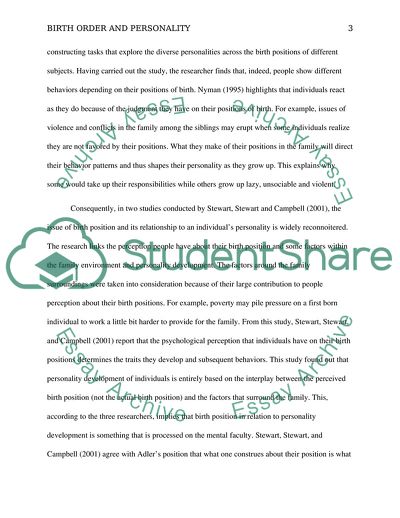Cite this document
(Birth Order on the Effects of Personality Literature review Example | Topics and Well Written Essays - 1250 words, n.d.)
Birth Order on the Effects of Personality Literature review Example | Topics and Well Written Essays - 1250 words. https://studentshare.org/psychology/1875398-birth-order-on-the-effects-of-personality
Birth Order on the Effects of Personality Literature review Example | Topics and Well Written Essays - 1250 words. https://studentshare.org/psychology/1875398-birth-order-on-the-effects-of-personality
(Birth Order on the Effects of Personality Literature Review Example | Topics and Well Written Essays - 1250 Words)
Birth Order on the Effects of Personality Literature Review Example | Topics and Well Written Essays - 1250 Words. https://studentshare.org/psychology/1875398-birth-order-on-the-effects-of-personality.
Birth Order on the Effects of Personality Literature Review Example | Topics and Well Written Essays - 1250 Words. https://studentshare.org/psychology/1875398-birth-order-on-the-effects-of-personality.
“Birth Order on the Effects of Personality Literature Review Example | Topics and Well Written Essays - 1250 Words”. https://studentshare.org/psychology/1875398-birth-order-on-the-effects-of-personality.


